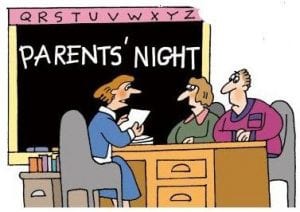New GCSEs
in English and Maths.
new GCSEs in maths, English language and English in Sept 15. It will be
assessed by external exams at the end of the 2 year course in the summer of 2017,
featuring the new 9 to 1 (high to low) grading system.
in Summer 2018, so the current year 8s will be the first to experience the new
exams for the majority of the subjects.
What’s happening to maths?
on problem solving. There will be new topics, such as ratio and proportion and
students will be expected to learn mathematical formulas by heart.
syllabus will feature around a third more content and will require pupils to
answer “real world problems”, including financial mathematics, to ensure the
area is covered in greater depth.
And English?
accurate spelling, punctuation and grammar in the new English language GCSE
and, while there will be no set texts, students will be expected to read
widely.
literature, which will no longer be compulsory, will see students having to
tackle an unseen text and will require pupils to study at least one Shakespeare
play, a Victorian novel and modern British fiction or drama since 1914.
part of the GCSE syllabus from 2015, with pupils required to study at
least 15 poems by at least five different poets.
shows comparison of new to old grades.














